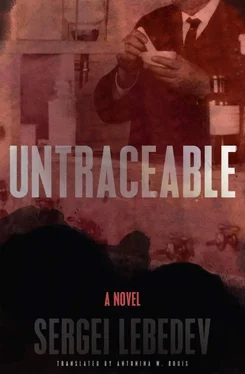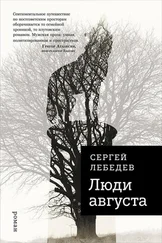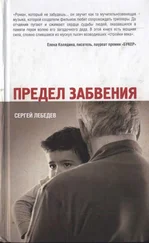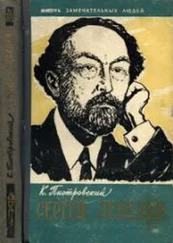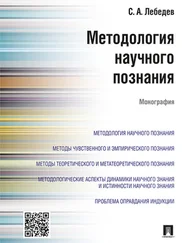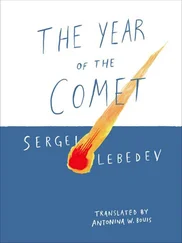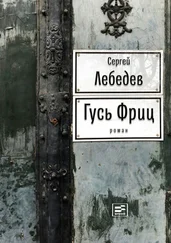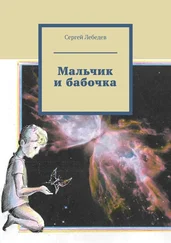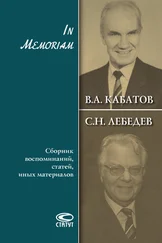Сергей Лебедев - Untraceable
Здесь есть возможность читать онлайн «Сергей Лебедев - Untraceable» весь текст электронной книги совершенно бесплатно (целиком полную версию без сокращений). В некоторых случаях можно слушать аудио, скачать через торрент в формате fb2 и присутствует краткое содержание. Город: New York, Год выпуска: 2021, ISBN: 2021, Издательство: New Vessel Press, Жанр: Современная проза, на английском языке. Описание произведения, (предисловие) а так же отзывы посетителей доступны на портале библиотеки ЛибКат.
- Название:Untraceable
- Автор:
- Издательство:New Vessel Press
- Жанр:
- Год:2021
- Город:New York
- ISBN:978-1-939931-90-0
- Рейтинг книги:3 / 5. Голосов: 1
-
Избранное:Добавить в избранное
- Отзывы:
-
Ваша оценка:
- 60
- 1
- 2
- 3
- 4
- 5
Untraceable: краткое содержание, описание и аннотация
Предлагаем к чтению аннотацию, описание, краткое содержание или предисловие (зависит от того, что написал сам автор книги «Untraceable»). Если вы не нашли необходимую информацию о книге — напишите в комментариях, мы постараемся отыскать её.
Untraceable — читать онлайн бесплатно полную книгу (весь текст) целиком
Ниже представлен текст книги, разбитый по страницам. Система сохранения места последней прочитанной страницы, позволяет с удобством читать онлайн бесплатно книгу «Untraceable», без необходимости каждый раз заново искать на чём Вы остановились. Поставьте закладку, и сможете в любой момент перейти на страницу, на которой закончили чтение.
Интервал:
Закладка:
He prayed for those who persecuted and tormented him. He developed an acute, borrowed sense of deceit, surveillance, bugs, dangerous, ambivalent things offered as gifts or appearing accidently. He tried to live in knowledge but without the poison of suspicion; the latter was rational but meaningless, for within it lay the victory of evil; to be not blind yet not unnecessarily seeing in the whirlpool, the circle dance of faces, any of which could be false.
He became inconvenient. For some in the hierarchy as well. He was transferred—away from big cities to modest village parishes; there was both care and concern that he was becoming too visible, too irritating to the authorities. Some of his fellow pastors said that he was led by the sin of ambition, sought personal glory rather than the good of the Church.
But he was led by his yearning, his will to sainthood that found no outlet.
Evil was approaching, palpating, testing. Three times women tried to seduce him: one, he was certain, of her own free will, but the other two… When they dispatched him to the sticks, he bought a car. Friends helped. But soon he lost his driver’s license; he was stopped on the road, they did a blood test, alleged he was driving while drunk. You managed to repeat Christ’s miracle, he said at that trial, turning water into wine. He bought a moped, it didn’t require a license. The moped was stolen. He knew that one day they would deal with him seriously. He even desired it—not petty attacks, adolescent pranks, but true martyrdom, the redemptive crown of thorns. People gathered around him, people who expected something from him, seeing him as a man who had the right to speak.
But when God appeared to him and said the Word, he was not prepared. He did not understand. He did not accept. He did not recognize. He rejected Him because in his pride he thought he knew how He would act. He thought he would recognize His will and would not allow secular voices to lead him into error.
He was blind!
Now when his life was almost at the end, he had become neither bishop nor preacher. He had not cultivated his original talents, and the borrowed ones were taken away. The Lord crushed his pride and gave him faith. That was why he could focus on the daily affairs of the church: roof repairs, balancing the books, registering births and deaths.
He thrived in unexpecting expectation.
He had been tried and set aside; now the time had come.
Events were set into motion, the masks were about to fall, the protective seals would vanish. Travniček understood that the man on the hill could cost him dearly; people like him were very expensive goods. They had hidden him, given him shelter and money; that meant that there were others willing to do so. Other people might have fears and temptations, responsibilities, rules, orders. So he would take his man upon himself. No matter what lay hidden in the locked vessel of another’s soul.
He was the only one who could do this safely for everyone.
Travniček started praying—for enlightenment for the man on the hill; for those who did evil and were now persecuted; for the hounds, the people with dead hearts.
For the gift of the incomprehensible.
CHAPTER 16
Usually, if he could not sleep, Kalitin listed the formulas of the substances that failed testing. They were never again synthesized; they vanished from the world, remaining only in lab notes; their names led to emptiness, to nonexistence.
But the time for long portions of dreams had ended. The clever god Hypnos had left the house and his sleepless brother stood at the door, refusing gifts.
Kalitin felt alone facing death and memory. He remembered almost everything he liked to remember and much of what he hoped to forget. He was ready to stop and fall asleep. But memory—unwanted, rejected—had come to exact a penalty for its long incarceration.
Kalitin got out of bed, fanned the flames, added kindling. Yesterday the eastern sky would have been getting light over the ridge by now. But today brought heavy clouds and rain beyond the mountains, hiding the dawn.
He needed just a few hours of sleep. And then he would leave. Had he been invited to join the investigation? Yes. So he would go away. The decision about where came on its own. The shore of the Arabian Sea. To a country run by the army and intelligence service; they would have a real appreciation for Neophyte and its creator.
Kalitin didn’t bother to search for the embassy address online. He had walked past it once, he had a vague recollection of the building, recognizably faceless. He wondered if it was under surveillance. Probably. A permanent post in some nearby apartment. Cameras with face recognition. Well, the main thing was to hand over his letter. The embassy people would find him. He would buy a new SIM card at a street kiosk. He’d have to leave all his things behind. Like the last time. In his new life, everything would be new.
The only things from the past would be Neophyte and himself.
Neophyte. When Kalitin finally had a full-fledged laboratory again, it could be moved from its travel container into a stationary vessel. He would be able to see how it was affected by the passage of time. That was the main enemy of all preparations of its class, hyperactive but not very stable. So it was a question—was it Neophyte in the container? Or just Mr. Fizz, bubbly water, no more harmful than children’s shampoo? That thought caused Kalitin pain. He couldn’t even imagine the death of Neophyte. Substance. Being. A cherished being.
Vera had wanted a child. A son. She must have known that he could have only one child: one born in a test tube. He sensed that children would not be given to him. He saw it as a kind of scientist’s blessing. But Vera…
Kalitin had blamed himself so many times for the marriage, planned to get a divorce. But he knew too well why he had married. For the same reason he had joined the Party, had gone to rallies and subbotnik volunteer activities.
The Island protected you, but it demanded loyalty. Beyond its borders lay the terrarium of science, where predatory monsters of various eras lived, as if in a crazy garden of time.
Elders. Abettors of the bloody destruction of scientific schools that culminated in execution and exile. Collaborators in murders executed with the help of critical articles. Connoisseurs of fatal polemics in the scholarly argot poisoned by Marxism, rivals for the attention of Stalin, the Giant of All Sciences. Creators of false doctrines born of ideological dogmas that destroyed, like decay, entire branches of knowledge.
Kalitin had met them in the hallways of institutes and ministries—the influential gray undead, who extended their time thanks to former privileges, medicines, hospitals, mineral spas, massages, and transplants. They were still deadly and could still devour you—if not alive, as before—if a new theory disproved their work of forty years ago, for which they had received bonuses, orders, and the title academician.
Youngsters. Shrewd Party activists, who did not write their own dissertations, scions of prominent families set up in science. These sleek creatures were as bloodthirsty as the old men, even though they did not have fangs and claws: the breed had degenerated. But they knew how to spread rumors, start an intrigue, pilfer a topic, steal an idea, become a coauthor, cut off financing.
On the Island, close to Zakharyevsky, Kalitin was practically invulnerable. But on the Island, the substances were only born. They had to be promoted, brought out into the world, albeit a secret one, and there Kalitin was, and therefore the products were, in danger.
Kalitin knew the strong and weak points in his CV, his tested and retested biography. When Zakharyevsky gave him the friendly advice to start a family because it would help his candidacy advance through the Party bureaucracy, Kalitin already knew his choice.
Читать дальшеИнтервал:
Закладка:
Похожие книги на «Untraceable»
Представляем Вашему вниманию похожие книги на «Untraceable» списком для выбора. Мы отобрали схожую по названию и смыслу литературу в надежде предоставить читателям больше вариантов отыскать новые, интересные, ещё непрочитанные произведения.
Обсуждение, отзывы о книге «Untraceable» и просто собственные мнения читателей. Оставьте ваши комментарии, напишите, что Вы думаете о произведении, его смысле или главных героях. Укажите что конкретно понравилось, а что нет, и почему Вы так считаете.
